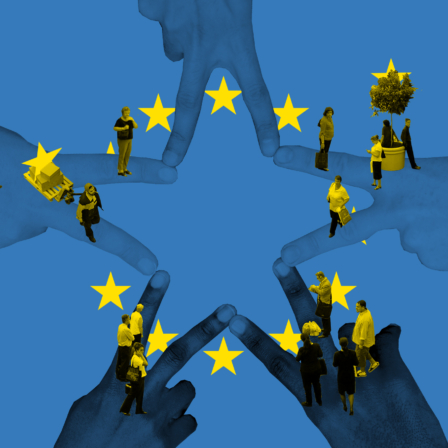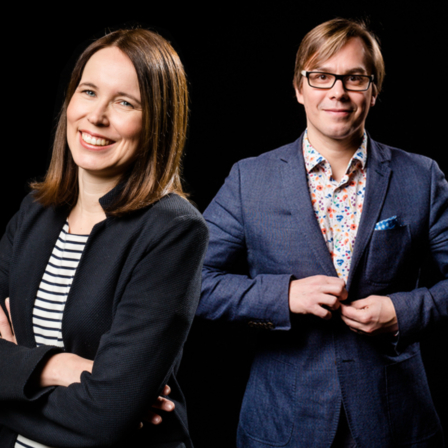1. Who really is a populist?
Populism has grown so much in recent years that people are already talking about the era of populism. At the same time, populism is one of the most incorrectly used terms of our time. When the same term can be used to describe Hugo Chávez’s Bolivarian socialism and the anti-communism of the Kaczyński brothers, it is worth asking whether that term still has real meaning. According to Hannah Arendt, political judgement is the ability to make the appropriate distinctions. Does this mean that our political judgement has failed if populism as a term no longer helps us make these distinctions? Should we get rid of the entire term?
Historically speaking, the roots of the populism concept can be traced back to farmers’ protest movements that occurred during the late 1800s in the United States and Russia. Populism began to grow in Latin America after the Great Depression of the 1930s. The concept was used to describe the political movements that developed around charismatic Latin American leaders, such as Argentina’s Juan Perón and Brazil’s Getúlio Vargas, whose rhetoric appealed to the people. Italian sociologist Gino Germani, who spent a lot of time in Argentina, defined populism as a multi-class political movement organised around a charismatic leader (Mudde and Kaltwasser 2012).
Well into the 1900s, populism was a heterogeneous but still quite limited phenomenon. When discussing populism, the topic was often clear even though consensus had not been reached concerning a definition of the concept. Since then, the popularity of populism increased dramatically, and it has become a general concept used to cover nearly all new political movements regardless of the politics they represent. Both Donald Trump and Bernie Sanders were called populists during the American presidential election. Italy’s Silvio Berlusconi, Iran’s Mahmoud Ahmedinejad, Peru’s Evo Morales and France’s Marine Le Pen have been designated as populists. Greece’s Syriza, Spain’s Podemos, Poland’s Law and Justice and France’s National Front have been referred to as populist parties. Occupy Wall Street and the Tea Party movement have been called populist mass movements.
Researchers have spent decades arguing about whether populism should be broadly or narrowly defined. In other words, should all phenomena that are considered populist meet detailed criteria or is it enough to identify smaller shared characteristics? Bulgarian political researcher Ivan Krastev has stated that the concept of populism suffers from the Cinderella complex: there is a shoe in the shape of populism, but no foot to fit it. On the other hand, it would be just as easy to state that there’s a foot to fit every shoe in the shape of populism.
Populism is an ideology that, rather than offering a complete world view in the way that liberalism or socialism do, focuses on describing the relationship between the people and the elite.
A common understanding that populism is best examined as a loose political ideology has only emerged during the past decade. In this sense, loose means that populism is an ideology that, rather than offering a complete world view in the way that liberalism or socialism do, focuses on describing the relationship between the people and the elite. Some degree of polarisation between the people and the elite is a feature shared by nearly all definitions of populism.
Populism researcher Cas Mudde’s “minimal definition” of populism is one of the most quoted in recent years (Mudde and Kaltwasser 2012): “Populism is a thin-centred ideology that considers society to be ultimately separated into two homogeneous and antagonistic groups, ‘the pure people’ and ‘the corrupt elite,’ and which argues that politics should be an expression of the volonté générale (general will) of the people.”
Since populism is “thin-centred”, it can be a part of left-wing or right-wing ideologies. It can be exclusive or inclusive (Palonen 2016). New research has also drawn attention to differences in degrees of populism and divided populism into “soft” and “hard” forms of expression (Aalberg et al. 2016). Different versions include empty populism, anti-elitist populism, exclusive populism and complete populism – a term that combines all of the other features.
However, these differences should not deflect attention from the core features of populism. In this article, populism refers to a political ideology that centres on the people and the elite. A clear division between the clean people and the corrupt elite shows that populism is a form of moralised politics rather than a form of socio-economic or socio-cultural politics. The definition of populism, either directly or indirectly, contains three core concepts (people, elite and the general will of the people) and two things to be opposed (the elite and pluralism).
According to researcher Jan Müller, populism is the permanent shadow of modern representative democracy. The division of people into groups with differing opinions and pluralism are the starting point for representative democracy, but a body that speaks in the name of the people and declares that this division can be overcome can rise out of its shadow at any time (Müller 2016). This is why understanding the characteristics and operating logic of populism also helps us understand the deficiencies and strengths of Western representative democracy.
2. Good and bad explanations for he rise of populism
The losers of globalisation
Fear of globalisation is an obvious explanation when looking for reasons for the rise of populism. In Western countries, the argumentation often progresses as follows: technological development and globalisation have increased competition for jobs, and the middle classes in industrialised countries have not benefited from globalisation in the same way as the middle classes in emerging economies. The income gap has equalised on a global scale, but become greater inside groups of countries. This is evident from, among others, Branko Milanovic’s elephant chart or the McKinsey report, which states that wages and capital income in up to 70 per cent of households in developed countries flattened out between 2005 and 2014 (McKinsey 2016).
Fear of globalisation is highest among the elderly, those with a low level of education and the working population.
Globalisation increases uncertainty about the future. The concerns and dissatisfaction of a Western middle class that fears for its position has been considered the best explanation for Brexit, the Trump phenomenon and the general rise of populism (Fukuyama 2014). People have started to talk about the winners and losers of globalisation. According to a recent poll conducted by the German Bertelsmann Stiftung, approximately half of Europeans see globalisation as a threat and half see it as an opportunity. Age, social class and education have a significant effect on attitudes. Fear of globalisation is highest among the elderly, those with a low level of education and the working population. These are the groups that are said to make up the hard core of the steadily growing populist voter base (Bertelsman Stiftung 2016).
However, studies indicate that support for populist parties cannot be explained only by socio-economic factors (for example, Inglehart and Norris 2016). Of course, support for populist parties centres on certain social groups: men, people with a low level of education, the lower-middle class and the working population are overrepresented in populist voters. We also know that populist supporters share a feeling of uncertainty about the economic future. Despite this, research carried out in recent years has often shown that the populist supporter base is broader than expected. The most successful populist parties attract a rather wide range of support: from the older middle class living in rural areas and from workers with a low level of education who live in cities. It has even been found that an individual’s socio-economic status does not strongly effect support for right-wing populists, and that support is based more on a general assessment of the state of the country (Elchardus and Spruyt 2014). However, a simplified story about the losers of globalisation still dominates public debate.
Tens of millions of Trump and Brexit supporters cannot be reduced to a group of fearful and anxious people who yearn for a simpler life.
According to Jan Müller, the “losers of globalisation” thinking can be traced back to modernisation theory, which was most prevalent during the 1950s and 1960s. As a result, populism was gradually seen as an expression of anger and anxiety by people who yearned for a simpler pre-modern lifestyle. The direct target of social thinkers who defended the theory was to understand anti-communist movements, such as McCarthyism and the John Birch Society, but it was also used to analyse the first populist movements formed by farmers in the late 1800s in the United States and Russia. The fact that the political movements labelled as the first populists developed at around the same time among the rural population established the idea of a close connection between populism and rural ideology. The image of populism as a regressive rebellion of economically backward groups in a modernising society was validated for decades. However, this is a poor description for large populist movements in many countries that attract support across class and ideological lines. Tens of millions of Trump and Brexit supporters cannot be reduced to a group of fearful and anxious people who yearn for a simpler life.
The impact of modernisation theory can also be seen in language use. When discussing supporters of populism, it is common to refer to terms like anger, resentment, fear and frustration. This indirectly suggests that populism is more about reactive emotions than rational thoughts. The same applies to psychology-based explanations about authoritarian personality types. The dubious idea behind these explanations seems to be that populist supporters are in need of therapy rather than democratic inclusion. According to Müller, this is dangerous talk because it strips populist supporters of their independence. It also conflicts with the ideal of liberal democratic pluralism.
General assessments of growing decadence or increased threats made by populism supporters should not be seen only as personal fears or status anxiety. Analyses and ideas may also be the cause of anger, frustration and fears, even though they may not always be very clearly formed. Ignoring this fact is like returning to the aristocratic world of the 1800s, where the elite considered whether it was even possible to give the overly emotional masses the right to vote. The values supported by populists are open to criticism, but classifying their claims as status resentment or psychological symptoms can very easily turn into the same kind of discrimination that supporters of liberal pluralism accuse populists of.
A shift from economy to culture
The findings of Harvard University researchers Ronald Inglehart and Pippa Norris sparked extensive debate in 2016 (Inglehart and Norris 2016). One of the core claims from their highly quoted research paper is that the significance of income level and social class as indicators of voting has been steadily falling in Western countries since the 1960s. The left-right axis that defined politics has gradually eroded while value, cultural and identity policy issues have become the new dividing line. The research assesses dozens of Western countries and shows a clear cultural shift in, for example, party election platforms where non-economic topics had already become more prominent than economic themes by the early 1980s.
The researchers believe that development leading to the new dividing lines began with the cultural revolution of the 1960s and 1970s, when young generations put post-materialistic values, such as women’s and minority rights and environmental values, on the political agenda. At that time, the left and right still had significant differences in economic policies. To put it bluntly, we could say that the left tried to nationalise while the right wanted to separate the economy from the state. The end of the Cold War and opening up of the economy forced leftist parties to move their agenda closer to the centre, meaning that the economic policy options of the left and the right came significantly closer to each other. The “third way” politics of Tony Blair and Gerhard Schröder became the symbol of the new-era left.
According to well-known American political commentator Fareed Zakaria, the late 1900s and early 2000s were characterised by broad consensus (Zakaria 2016). This was mainly due to changes in the global economy that limited the range of instruments available to individual nation states as multinational administration and policies increased. The positions that mainstream parties on the left and the right took regarding major issues, such as EU integration and new liberal reforms, moved very close to each other. People even began to talk about TINA (there is no alternative) politics. Convergence in economic policy created the space for the rise of cultural and identity issues to the heart of politics.
The popularity of post-materialistic values has continued to grow throughout the 2000s and they can now be viewed as mainstream. However, the change has also created a counter movement. Supporters of traditional values have, in increasing numbers, switched their allegiance to parties that strive to slow this change. New populist parties have been established in Europe and doubled their support in just a few decades. Based on the election results in the 24 European countries examined in Inglehart and Norris’s research, support for populist parties already averages close to 14 per cent. In the American two-party system, on the other hand, an increasing number of white working-class representatives have become disenchanted with the liberal values and cosmopolitan agenda of the Democrats and began to vote for Republicans, who represent their values on the three Gs: guns, God and gays.
Cultural threats had a far greater impact on dedicated Republican supporters than free trade, tax cuts or dismantling norms.
A few years ago, the huge popularity of the Tea Party movement in the United States was initially seen as a reaction to the economic policy of the Obama administration, which placed a strong focus on stimulus. However, a large interview study showed that supporters of the movement considered cultural and value issues more important than the economy (Williamson et al. 2011). It is likely that Trump noticed this while he was on the campaign trail. In any case, he understood that cultural threats had a far greater impact on dedicated Republican supporters than free trade, tax cuts or dismantling norms.
Research shows that there is much more to the Trump phenomenon than Trump’s personality. According to political researcher Justin Gest’s study, 65 per cent of white Americans stated that they were ready to vote for a candidate who would “restrict immigration, promise to provide American jobs to American workers, preserve America’s Christian heritage and stop the threat of Islam” (Gest 2016).
The same observations were also made in Europe. According to a Chatham House report, a negative attitude towards immigration is the strongest factor affecting voting for right-wing populists. The core supporters of populists are opposed to multiculturalism. The most successful right-wing populist campaigns have been those that frame immigration as a cultural threat. Among the working class, the cultural threat caused by immigration has been found to be more important than any economic threat when it comes to deciding how to vote. In particular, Islam is perceived as a cultural threat and Muslims are considered incapable of integrating into Western culture (Chatham House 2011).
Inglehart and Norris also found signs of a more permanent change in their research. Age, level of education, gender, national identity and religion affect support for populism more than income level or social class. Especially in older age groups, white men with a low level of education feel that the traditional values they support have been marginalised in today’s cultural atmosphere and are prepared to vote for parties that promise to preserve traditional values and restore discipline and order in society. The generation gap was also evident in attitudes towards immigration: younger age groups have the least fear of negative impacts associated with immigration.
Regardless of economic development, it is likely that major differences in values, especially between generations, will continue to cloud the political field in Western countries.
The purpose of the above description is not to claim that the economy is no longer important in politics but to demonstrate how the dividing lines of cultural and identity policy also play a growing role in defining Western politics. An understanding of these issues is essential when looking for reasons for the rise of populism. Regardless of economic development, it is likely that major differences in values, especially between generations, will continue to cloud the political field in Western countries.
Technology puts pressure on the political system
Philosopher Georg Henrik von Wright was one of the few Finns writing about the rise of populism in the 1980s and 1990s (1986; 1996). In a long essay describing historical development curves, he predicted that economic globalisation would put nation states in a difficult position and lead to a number of phenomena, one of which would be the rise of populism.
Wright did not actually use these words, but he talked about growing tension between the political system and the technology system. He used the term technology system to refer to the economic, industrial and technological forces that lead global development. Wright placed the political system in opposition to the technology system. The technology system operates in a multinational manner and does not have a comprehensive organisation. In contrast, the political system mainly functions via nation states.
According to Wright, the growing grip that technology had over the political system was one of the most defining features of culture in the late 1900s. He felt that this would be particularly damaging to welfare states, which would become less able to use internal measures to control the social problems caused by a technology system that operated globally. He predicted that the deterioration of nation states would lead to the rise of populism:
I believe that the deterioration of the old nation states will continue. They will continue to lose sovereignty, perhaps disintegrate into regions, and become “provincial” in nature. In contrast to the situation in the old Europe, their mutual competition will not be a battle against domination or a race to colonise the far corners of the earth. Instead, it will be manifested as a local and populist rather than patriotic nationalism that feeds suspicion and hate towards outsiders.
When reading Wright’s later works, one can only be amazed at how accurate and far-sighted his prognoses were, especially regarding the effects of globalisation. Many researchers and intellectuals have since addressed the same themes in their writing. One of the most recognised, American economist Dani Rodrik, has used the “trilemma” of the global economy to approach the same issues. According to Rodrik’s well-known statement, the global economy, national sovereignty and democracy are mutually incompatible. Only two of the three can be combined simultaneously (Rodrik 2016).
Although Rodrik’s trilemma is a rough simplification, it provides a starting point for examining the changes that have occurred in Western democracies in recent years. The EU was, at least at some point, seen as a method of controlling the excesses of a multinational economy. Despite these efforts, the EU’s political reach has not become strong enough to convince people that it will provide them with security. On the contrary, the measures intended to manage the Eurozone crisis failed badly, at least in light of democracy. The only institution whose members are directly chosen by the people – the European Parliament – did not have a real role in influencing austerity measures imposed by the EU, because the European Commission, European Central Bank and International Monetary Fund were responsible for the actions. As a result, EU-level elections did not provide people in countries that were the target of economic austerity measures with any opportunity to influence policies at the EU level. Thus, it is no surprise that people do not see integration as a reaction to globalisation but more as its loyal servant.
The rise of nationalistic populism can actually be considered a natural outcome of this development. With the failure of the EU’s promise of democracy, greater numbers of people are seeking security with parties that defy the bureaucracy in Brussels and promise to restore autonomy and independence to the people. This development has gone farthest in Hungary, where Prime Minister Viktor Orbán is implementing strong nationalist-authoritarian politics. In his book The Year of Dreaming Dangerously, published in 2012, Slovenian philosopher Slavoj Žižek stated that the Hungarians’ lack of enthusiasm for defending the liberal democracy marketed by the EU should be no surprise if it is being promoted while austerity measures that weaken their living conditions are being implemented.
Populism is a health check for democracy. Populism increases when democracy is doing poorly. When viewed in terms of this indicator, Western democracy is not doing well.
In a similar way, Donald Trump has gained support in the United States by claiming that he will take power from multinational operators and return it to the national level. This is an effective message because many citizens are frustrated with politics that only reinforces the changes already brought about by the global economy. Populism researcher Paul Taggart claims that populism is a health check for democracy. Populism increases when democracy is doing poorly. When viewed in terms of this indicator, Western democracy is not doing well.
3. Is populism a threat to democracy?
Populism stimulates democracy
In addition to the definition of populism, political researchers have long debated whether populism is a necessary corrective or a threat to democracy. These issues are linked to each other, as the definitions of populism have a strong effect on how populism is viewed as a phenomenon. Research provides support for both claims (Mudde and Kaltwasser 2012). Arguments on behalf of populism as a corrective can be divided into three categories.
- Populism brings the politics back to politics. It stimulates the polarisation that is a part of democratic politics and can add responsibility to the democratic system by bringing certain issues back inside the sphere of politics. As a result, it is force that opposes the “judicialisation” and economisation of politics.
- Populism gives a voice to people excluded from politics. As long as protest remains a part of the democratic system, populism does not represent a threat to democracy. At its best, populist politics supports diversity.
- Populism put themes rejected by traditional parties but still important to the majority of the population back on the political agenda (immigration and criticism of the EU).
These arguments are linked by what is known as criticism of hegemonic liberalism, according to which the dominance of rational liberal thinking has squeezed out an essential part of democracy: difference of opinion. Since the end of the Cold War, mainstream parties have achieved broad consensus about many big political questions, such as European integration, multiculturalism and neoliberal economic reform. At the same time, left-wing parties have moved closer to the political centre, such as the “third way” politics launched by Tony Blair, and turned their backs on offering real options for neoliberal politics. This has created a situation in which it becomes increasingly difficult to differentiate between mainstream parties. Left-wing theorist Chantal Mouffe has described the lack of alternatives in politics as a choice between Coca-Cola and Pepsi. According to Mouffe, this lack of alternatives is what led to the development of strong anti-liberal counter movements.
By reintegrating themes rejected by traditional parties back into political discussion, populist parties have given a voice to people who feel that traditional parties and leaders are not listening to them. Political representation has not functioned optimally in Finland either, as the political elite has traditionally taken a much more positive attitude to certain issues, such as immigration and the EU, than people on average, especially those who did not vote, (Grönlund and Wass 2016). This has left space for new players and populist parties have responded to the demand. Viewed in this manner, populism cannot be considered a move against democracy but as a natural part of democratic politics and diversity.
However, extreme populist politics produces a homogeneous “we” spirit and is linked to racism (Palonen 2016). In particular, the definition of ethnic people favoured by right-wing populists leads to an unavoidable conflict with the principles of democracy. Minority rights are seen as being threatened when populists emphasise the rights of a strictly defined people in their ideology. When they gain power, populists have often been on a collision course with constitutional liberalism. They have also challenged the distribution of power and institutions that safeguard responsibility, including constitutions.
The impact of populism ultimately depends on many factors: the structure of the election and party system in the country (for example, a presidential or a parliamentary system, a multi-party system or a two-party system), the position of the populist party in the party system, support for the party in question, whether the populists are part of the government or outside it, and the overall state of democracy in the country. When in opposition, populists have not presented a threat to democracy, but many recent examples indicate that once they achieve a strong position of power populist parties can truly destabilise the democratic system. Regardless of the country, there are many similarities in their style of governing.
Populism as a threat to democracy
In addition to opposing the elite, populists also resist pluralism. They claim that only they are the real representatives of the people.
According to Jan Müller, the author of What is Populism, it is naive to think that populism could be some sort of corrective for democracy. The main reason for this lies in its operating logic: at the heart of populism is a moralised picture of politics where the world is divided into the corrupt elite and morally untainted people According to Müller, being critical of elites is not enough to classify a political movement as a populist, because that would make any leader or critic of the status quo a populist. In addition to opposing the elite, populists also resist pluralism. They claim that only they are the real representatives of the people. This representative claim is not empirical but moral in nature, which means that populists can always claim that anyone who does not support their ideas is also not a proper citizen. This model of thinking is summed up by the comments of Nigel Farage, the main architect of The UK’s EU exit campaign, when he stated that it was a victory for real people. By doing so, he was effectively defining the 48 per cent of citizens who voted to stay in the union as something other than real people.
Müller considers populism a threat to pluralistic democracy because populists create an illusion of a unified and homogeneous people whom only they are morally entitled to represent. However, representative democracy is based on the idea that the people have always been divided in terms of their opinions. According to Müller, populism can actually be considered a form of identity politics that aims for exclusion and casts a shadow over representative democracy.
In populist rhetoric, exclusion is visible on two levels: the elite and minority groups are separated from the concept of people. Both of these groups are others who take away the benefits that belong to hard-working citizens and are fundamentally different to “us”. In the rhetoric of the Finns Party and many other European populist parties, this has been characterised by the simultaneous exclusion of the “Brussels elite” and immigrants. In the United States, years of debate about the birth of President Barack Obama is another good example of this logic. In the eyes of the conservative right, Obama simultaneously epitomised elitism and the otherness of African Americans. Thus, the people who doubt Obama’s birth – the “birthers” – believe that Obama is not only an unacceptable president but also illegal. Rumours about Obama’s birth did not end even after Obama released his birth certificate (Flynn et al. 2017).
For populists, the interests and common good of the people are something that, regardless of election results, only they can identify and only they can represent. Speaking for the “silent majority” is popular among populists. Although this validation of the people’s will regardless of election results is a metapolitical illusion, an awareness of it helps us understand why populists often call the end result immoral after losing an election and refuse to accept the opposition after gaining power. In Hungary, Viktor Orbán has stated that it is impossible for the “people to be in opposition”. In Holland, Geert Wilders has repeatedly referred to the parliament as a “fake parliament” where “fake politicians” work.
Populists in power
The populists’ exclusive definition of the people does not necessarily mean that the people left outside will be sent to prison camps after populists take power. However, it would be naive to see populism as harmless campaign rhetoric that will take a back seat once the populists gain power. Many examples in Europe and other parts of the world have demonstrated that populists are also able to govern as populists. Müller identifies three main techniques of the populist style of governing.
- An effort to take control of all state institutions.
- Corruption.
- Systematic repression of civil society.
Even when in power, populists often try to present themselves as an oppressed minority.
Hungary and Poland are cautionary examples of the above-mentioned developments. The decisions made by Viktor Orbán and his Fidesz party and Jaroslaw Kaczyński and his Law and Justice party have repeatedly restricted judiciary independence. Fidesz has even pushed through changes in civil service law so that it can appoint party members to positions that were previously considered non-political. Both parties have also made repeated attacks against the free media. Donald Trump has also accused the media and journalists of being liars. These leaders have labelled critics of their actions as henchmen for foreign powers or the old elite. Even when in power, populists often try to present themselves as an oppressed minority.
Populists also have a tense relationship with non-governmental organisations. NGOs threaten the illusion maintained by populists that only they have the moral right to serve as the voice of the people. As a result, after gaining power populists have systematically hindered the activities of NGOs. One common tactic involves undermining the credibility of NGOs by accusing them of representing a foreign power. Orbán has regularly attacked NGOs that received foreign funding. In 2014, his target was NGOs that received funding from Norway. Following Trump’s victory, Orbán has been expected to set his sights on organisations supported by billionaire George Soros.
By invoking their exclusive moral right to represent the people, populists are trying to politicise all state institutions, including the constitution. They believe that distributing power among different institutions will prevent a unified people from expressing its will. Populists are characterised by hostility towards constitutionalism. The typical dynamic in the populist method of governing is to strengthen executive power at the expense of the judicial system. Revising the constitution to serve their own purposes is an effort to cement their own position of power and limit the power of non-populists. In Hungary, the new constitution was used to influence the choice of members of the Constitutional Court and the length of terms in a way that strengthened the position of Fidesz. Issues that should, based on their level of detail, be part of day-to-day policy have also been added to the constitution. These measures mean that the constitution is no longer a framework that defines day-to-day policy but becomes a battleground for party political struggle.
Claiming that we are also part of the people is much different to declaring that we alone are the people.
Of course, constitutions have been changed before as a result of political struggle. However, movements that defend civil rights have rarely invoked their exclusive moral right to speak for the people. Claiming that we are also part of the people is much different to declaring that we alone are the people. This difference also separates populist rhetoric from the claims of civil rights activists.
One of the principles of democracy is that any individual or any group has the right to demand that new rights be included in the constitution. Because of this, the concept of the people can never be conclusively defined in democracy. According to Müller, populists are a threat to democracy because they claim that the opposite is true. They believe that the people can be strictly and conclusively defined and that only they can be its morally legitimate representatives.
4. The future of populism
Extensive potential for support
Populism has already taken root in many Western countries. Support for populist parties has been growing steadily in Europe since the 1960s. Their support has increased from a few per cent to an average of 14 per cent and there are no signs of a change in this trend. On the contrary, statistics and surveys indicate that populist parties have even greater potential to attract support. European attitudes towards immigration and the EU are very sceptical. The latest Eurobarometer report shows that immigration is the greatest concern for Europeans (European Commission 2016). This is not just a matter of a spike in the statistics caused by the refugee crisis but a more lasting trend. Surveys conducted in the 1990s showed then that two thirds of Europeans felt that the limits of immigration had been reached. In the same survey, up to one fifth of respondents were in favour of sending immigrants home (Chatham House 2011).
Up to half of the population in many European countries believes there are too many Muslims in their country.
The image of a conflict between cultures maintained by populists is also strongly echoed in statistics and research. Up to half of the population in many European countries believes there are too many Muslims in their country. Islam is, above all, seen as a cultural threat to the national culture and European values, and Muslims are considered unable to integrate. A Chatham House report that summarised statistics from the past decade ends with the harsh conclusion that instead of being united in diversity, as stated in the official motto of the EU, Europe is united in rejection of Muslims and Islam.
The position of the Western middle classes is a key factor when considering the future of populism. According to Francis Fukuyama, who has researched the long curve of democratic development, a healthy middle class is the cornerstone of a stable democracy. Societies in which the distribution of wealth is very unequal are susceptible to oligarchical abuse and populist movements. Fukuyama believes that the future of Western democracies is heavily dependent on how they can control the pressure caused by the shrinkage and erosion of the middle classes.
A third factor that may have an effect on potential support for populists is growing dissatisfaction and distrust concerning institutions, political parties and governments. The Eurobarometer trend for the past 10 years shows a steep drop in trust in the EU and national parliaments and governments (European Commission 2016). Along with a negative attitude to immigration, opposition to institutions, traditional parties and the EU are the few issues shared by populist agendas around Europe. Declining trust in these organisations seems likely to improve the chances for populist parties to succeed in elections.
The ageing of populations is a fourth factor that may affect support for populists in Europe. Although the most successful populist parties do have quite broad-ranging support, those in the older age groups, and men in particular, are clearly overrepresented among populist supporters. The differences in values between generations revealed by research will continue to blur the political field in Western countries in the future (Inglehart and Norris 2016).
The influence of populist parties
The influence of populism depends on many factors: the party system, the relationship of populists with other parties, the extent of populist support, the state of democracy and, of course, whether populists are in government or in opposition.
According to the prevailing view, populists are bound by the same restrictions as other parties when they are in power. Populist rhetoric takes a back seat and the parties become more mainstream when populists take responsibility. However, in recent years it has become apparent that populists can also govern as populists. Poland and Hungary are cautionary examples of this. Hungary’s Fidesz and Poland’s Law and Justice party are a threat to pluralistic democracy, primarily because they present themselves as the only legitimate representatives of “the people”. Once in power, this serves as their justification for taking over the government apparatus, bypassing the separation of powers (the three independent branches comprising the legislature, executive and judiciary) and the opposition, and systematically suffocating civil society. All of these are repetitive characteristics of the populist style of governing.
The American presidential system gives the winning candidate extensive powers to alter reality in any chosen direction. However, parliamentary multi-party systems like that in Finland ensure that no single party can form a government alone, which limits the power of individuals to pass their desired reforms. The fact that traditional parties in many multi-party systems have refused to form coalitions with populists has limited the influence of the populists despite strong growth in their support. This “cordon sanitaire” has also received a lot of criticism. Systematically leaving populist parties outside government coalitions can reinforce the impression of a growing lack of alternatives and strengthen many of the tendencies that led to the growth of populist parties in the first place.
In the short term, the increase in support for populist parties is likely to complicate the formation of governments in many European countries. Parliamentary elections have been or will be held in Holland and Germany in 2017. Both countries have a growing populist party or one that already has significant support. It will be interesting to see what kind of government coalitions are formed in these countries if populist parties are as successful as expected in the elections. France will also hold its presidential election in April and May, and the National Front’s Marine Le Pen is considered to have a realistic chance at victory. The debate about the rise, spread and effects of populism is unlikely to subside this year.
Thus far, populist parties’ co-operation and ability to build coalitions at, for example, the EU level has been non-existent.
The ability of populist parties to co-operate at the multinational level is an interesting long-term question. Thus far, populist parties’ co-operation and ability to build coalitions at, for example, the EU level has been non-existent. Even the populist parties in the European Parliament are divided into many different groups. This indicates how heterogeneous these parties are, but it also shows that many populist parties are young and still trying to find their place on the party map (Deutsche Bank 2015). A gathering of right-wing populists at a joint event in Koblenz, Germany in early 2017 may have been a sign of a shift towards closer collaboration at the EU level. The meeting was not intended to create a permanent “Populist International” but to raise the right-wing populist spirit prior to the parliamentary elections in Holland.
The rise of populism has been accompanied by an increase in populist rhetoric in mainstream parties and media.
Finally, it must also be stated that the effect of populism cannot be reduced to merely adding up the parliament seats and government positions held by populist parties. Research has found that the rise of populism has been accompanied by an increase in populist rhetoric in mainstream parties and media. People have started to talk about the spiral effect of populism: standing up for the little person and the people against the elite is a strong message, and it can easily become part of the agenda and rhetoric of parties and media in pursuit of popularity. When parties and the media repeat populist slogans and arguments, this decreases voters’ satisfaction with politics and further increases support for populist parties (Aalberg et al. 2016).
Populism is a health check for democracy
People have said that populism is like a drunk guest at a dinner party: it rarely respects the code of conduct for public debate but is still able to bring up painful truths about the failures of the political system. It is hard to see populism as a corrective force for democracy due to an operating logic that spurns institutions and the opposition and its exclusive definition of the people. However, the rise of populism forces supporters of liberal pluralistic democracy to seriously consider the reasons behind the problems of representative democracy. What are the criteria for belonging to a political community? Why is pluralism worth saving?
Dutch researcher Cas Mudde has stated that the only way for traditional parties to stop the growth of populism is to begin politicising the bigger issues of our time, such as immigration, the European Union, neoliberal economic policy and globalisation – issues on which traditional parties have had broad consensus throughout the 2000s (Mudde 2016). Traditional parties must be able to offer people alternatives regardless of the fact that several factors still limit the ability of nation states to implement sovereign solutions. The Trumps, Orbáns and Wilders of the world do well in part because they promise to take power back from multinational networks and return it to the national level. This is an effective message, and I hope it also sends a message to those who are frustrated with a politics that only seems capable of adapting to the boundary conditions of the global economy.
Sources
Aalberg T., Esser F., Reinemann C., Stromback J. and De Vreese C. (2016), Populist Political Communication in Europe, Routledge, Abingdon.
Bertelsmann Stiftung (2016) “Fear Not Values. Public opinion and the populist vote in Europe”.
Chatham House (2011) “Right Response: Understanding and Countering Populist Extremist in Europe”.
Deutsche Bank (2015): “A Profile of Europe’s Populist Parties: Structures, strengths and potential”: www.dbresearch.com/.
Elchardus M. and Spruyt B. (2016), “Populism, Persistent Republicanism and Declinism: An Empirical Analysis of Populism as a Thin Ideology”, in Government and Opposition, Vol. 51, no. 1, pp. 111-133.
European Commission (2016) Standard Eurobarometer, Autumn 2016.
Flynn, D. J., Nyhan B. and Reifler J. (2017), “The Nature and Origins of Misperceptions: Understanding False and Unsupported Beliefs About Politics”, Political Psychology Vol. 38 (S1), pp. 127-150, February 2017.
Fukuyama F. (2014) Political Order and Political Decay, Profile Books, London.
Gest J. (2016), The New Minority, Oxford University Press, Oxford.
Grönlund K. and Wass H. (2016), “Poliittisen osallistumisen eriytyminen – Eduskuntavaalitutkimus 2015”, Finnish Ministry of Justice: www.vaalitutkimus.fi/documents/Eduskuntavaalitutkimus_2015.pdf.
Inglehart R. and Norris P. (2016), “Trump, Brexit, and the Rise of Populism: Economic Have-Nots and Cultural Backlash”, HKS Working Paper No. RWP16-026.
Krastev I. (2007), “The Populist moment”, Eurozine: www.eurozine.com/the-populist-moment.
McKinsey Global Institute (2016), “Poorer Than Their Parents? Flat or Falling Incomes in Advanced Economies”.
Mudde C. (2016), “Europe’s Populist Surge: A long time in the making”.
Mudde C. and Rovira Kaltwasser C. (2012), Populism in Europe and the Americas: Threat or Corrective for Democracy?, Cambridge University Press, Cambridge/New York.
Müller J. (2016), What is Populism?, University of Pennsylvania Press, Philadelphia.
Palonen E. (2016), “Populismi on välttämätöntä”, Ulkopolitiikka, March 2016.
Rodrik, Dani (2011). The Globalization Paradox: Democracy and the Future of World Economy. W. W. Norton & Company.
Taggart P. (2000), Populism, Open University Press, Buckingham/Philadelphia.
(von) Wright G. H. (1986), Tiede ja ihmisjärki. Otava.
(von)Wright G. H. (1996), Ihminen kulttuurin murroksessa. Otava.
Williamson V., Skocpol T. and Coggin J. (2011), “The Tea Party and the Remaking of Republican Conservatism”, Perspectives on Politics, March 2011, Vol. 9, No. 1.
Zakaria F. (2016), “Populism on the March”, Foreign Affairs, November/December 2016.
Žižek S. (2012), The Year of Dreaming Dangerously, Verso, London/Brooklyn.





















Other articles
Share these too.